Weaving Economic Empowerment for Women
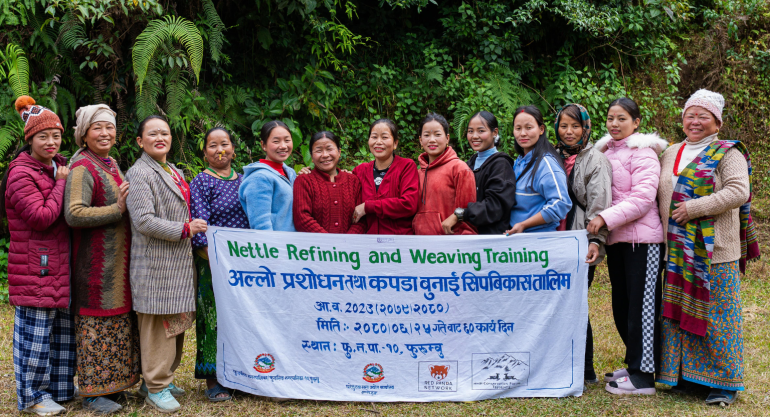
This International Women’s Day we’re celebrating the women of Phurumbu who participated in our nettle fiber production training for financial freedom.
Deep in red panda country – in the cloud forests of the Eastern Himalayas – there is a small village called Phurumbu, home to an estimated 2,500 people. The people of Phurumbu rely almost entirely on farming to support themselves and their families, with the women of the village having little to no financial independence.
Nettle, a perennial herb, surrounds the small village of Phurumbu in abundance and is a fiber-yielding plant with high economic, social, and cultural value. The thread produced from nettle has unique strength, smoothness, and a silk-like luster that makes it both durable and beautiful. Nettle can be woven to make mats, bags, jackets, hats, and blankets, which are some of the most popular souvenirs in Nepal and across international markets.
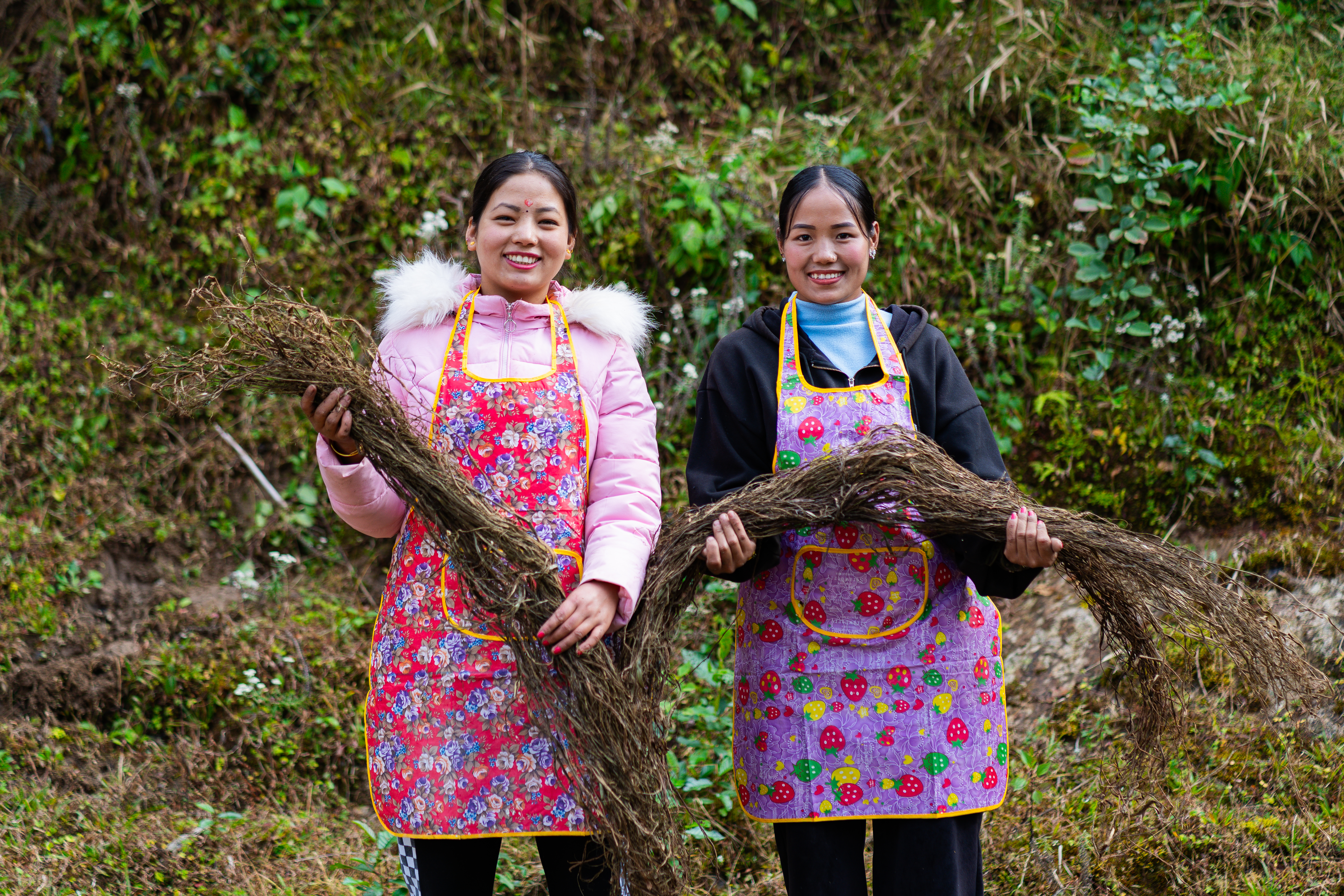
Two training participants holding nettle fiber
Phurumbu is lucky to boast an abundance of such a valuable plant, however, only a small number of individuals hold the skills and knowledge to extract fibers from the nettle, make it into thread, and weave that thread into material.
We wanted to close that knowledge gap while offering the women of Phurumbu an alternative path to generate sustainable economic freedom. That’s why Red Panda Network (RPN) partnered with Phungling Municipality, Taplejung, and the Office of Cottage and Small Industry, Taplejung, with funding from the Detroit Zoological Society, to offer nettle fiber training to local women.
.jpg) Yarn-making process during nettle fiber processing training
Yarn-making process during nettle fiber processing training
From Plant to Product: Nettle Fiber Processing
In 2016, we held a 7-day nettle fiber extraction training for 17 participants in Phurumbu. Afterward, we received positive feedback from the participants of the training and decided to offer another, more in-depth training opportunity. In 2023, we welcomed 15 women of Phurumbu to a 60-day nettle refining and weaving training where they could continue to develop their skills.
This training employed both theoretical and hands-on exercises where participants learned the in-depth process of turning Himalayan nettle into cloth that can then be sold as-is or used to create a wide variety of durable and beautiful products.
The training was facilitated by Asha Limbu, a local entrepreneur who runs a Himalayan Nettle products shop in Taplejung district, who was happy to share her knowledge with the 15 participants.
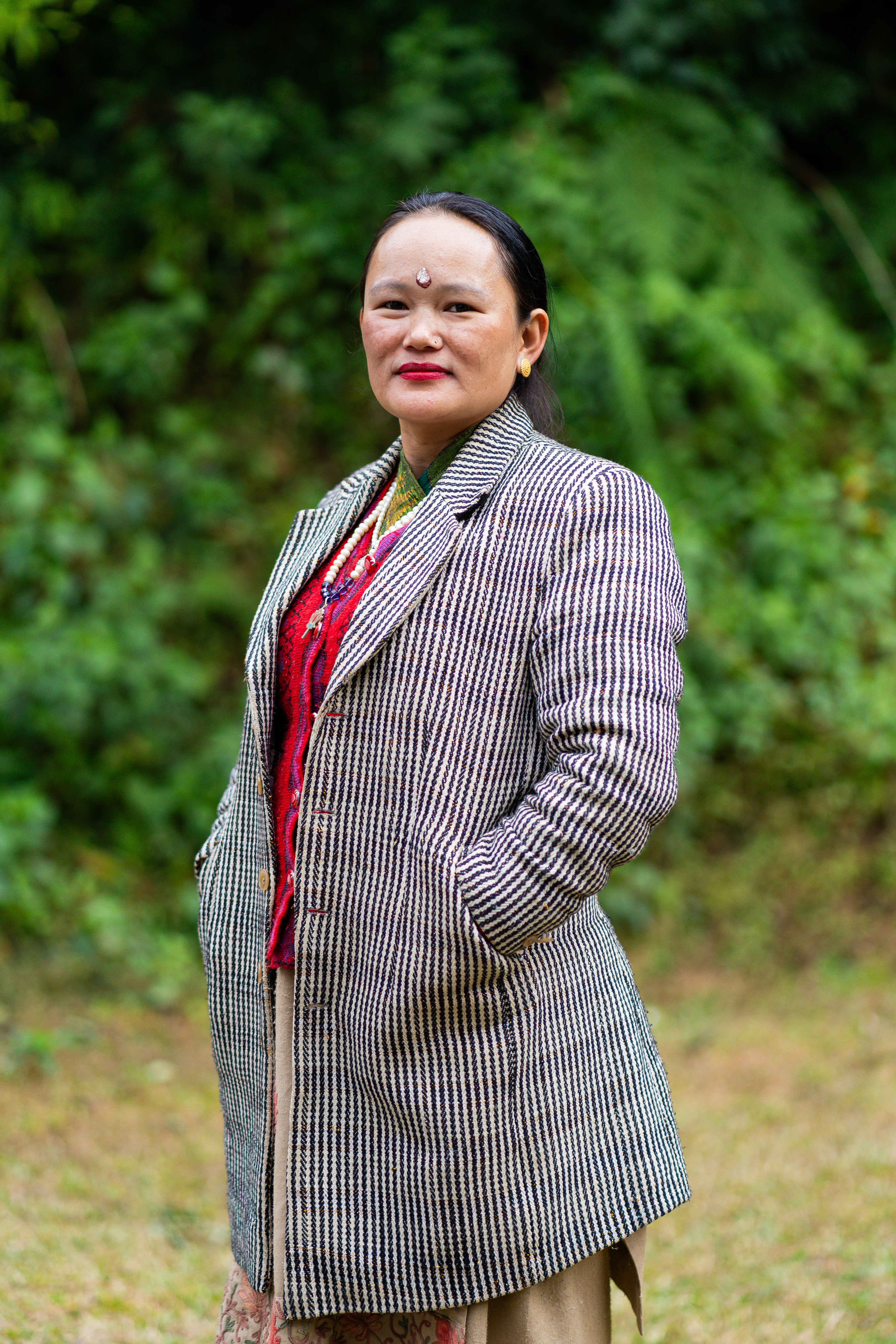
Asha Limbu, facilitator of the nettle refining and weaving training
The women who participated in the training were from a wide variety of experiences and ages, ranging from 22 to 68 years old. Out of 15 trainees, 11 had received primary or secondary education and 4 were illiterate. The annual income of the trainees ranged from Rs. 100,000 (around 1,206 USD) to Rs. 400,000 (around 4,824 USD).
For 13 of the participants, family decision-making power is held by men in their households. This training offered these women an avenue for economic freedom they may otherwise not have access to, with limited education and few employment opportunities for women in their local village.
After the training, all 15 local women gained comprehensive knowledge and skills in Nettle fiber extraction, thread processing, and the weaving process, which will allow them new avenues for financial independence.
Throughout this two-month training, the women learned each step of the nettle fiber creation process.
First, they collected Himalayan Nettle from the local forest. They then peeled the bark, separated it by hand, and cooked it with ash. Once cooked, the nettle is put in the beating machine and washed. After it is completely cleaned, it is mixed with white mud, a technique that both preserves the Nettle wool and makes it easier to separate.
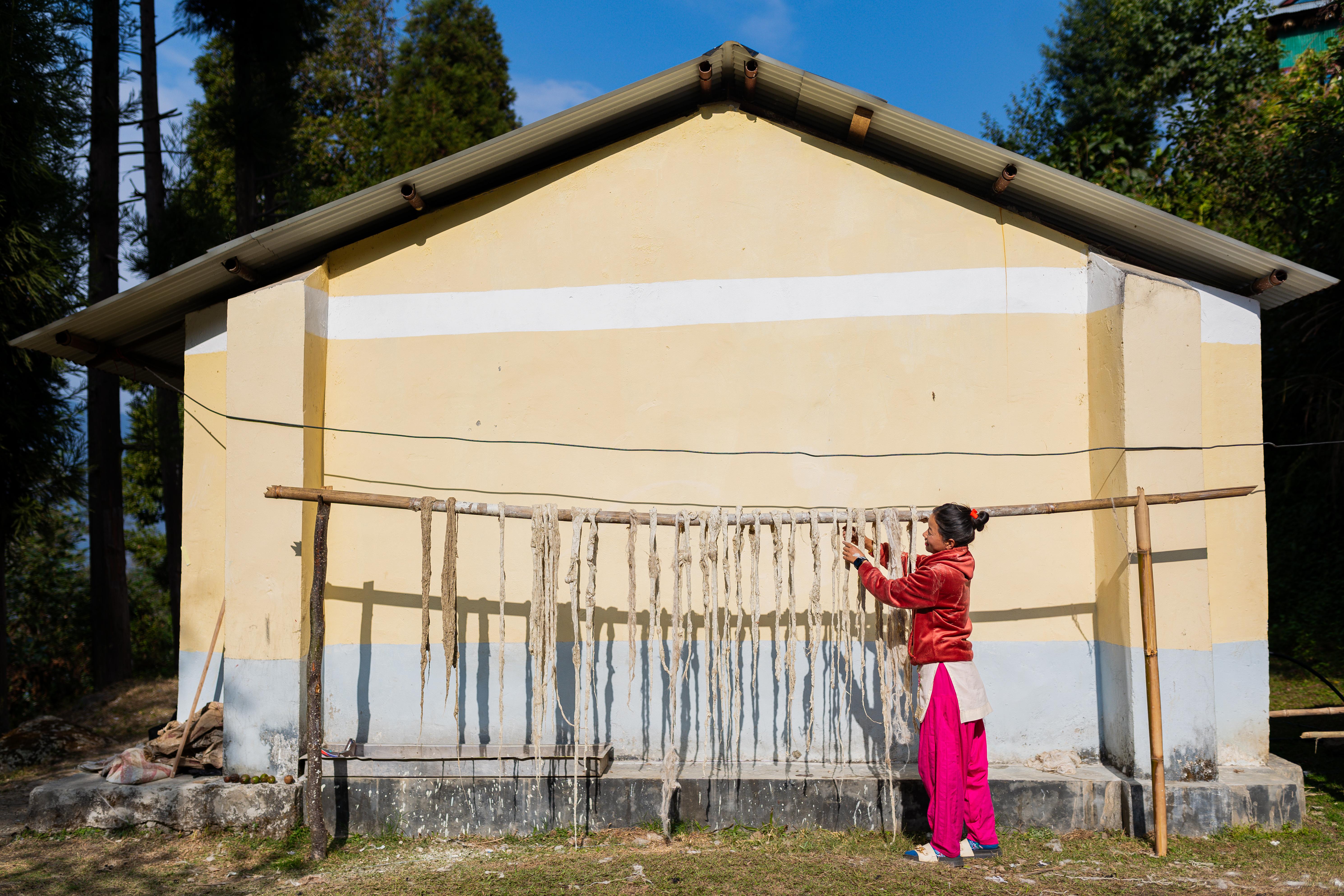
Participant drying nettle fiber in the sun after being covered in white mud
After applying the white mud and drying in the sun, it is placed on a machine that separates it into threads and then spun either manually or with a machine to make yarn. This yarn is then woven in the loom to make fabric.
What’s Next for these Nettle Experts?
With the training course completed in January, these women are now equipped to make nettle fiber cloth on their own. Since the completion of the course, many of the women return to Phurumbu Hall regularly to continue their thread-making and weaving practices without the guidance of Asha.
.jpg)
Nettle fiber processing training participant
However, there is still much to be done to see long-term sustainable change in this small village. All of the women have requested follow-up training to learn Nettle product design, tailoring, product making, labeling, and packaging so they can make completed, sellable products.
RPN also hopes to provide hand-looms to these women so they can continue their trade at home, as well as a permanent place to keep the processing machines where the women may access them whenever they need.
To close the loop on this sustainable practice, RPN also hopes to move away from extracting nettle from the forests and to grow the nettle on private lands, which improves product quality while reducing human encroachment in red panda habitat.
Can you help us secure sustainable futures for these local women? With a gift of $15 per month, you can support financial freedom and gender equality for the women of Nepal; all while fostering red panda stewardship and conservation.
Join our growing community of Panda Guardians this International Women’s Day and be a part of a better future for pandas, people, and the planet!
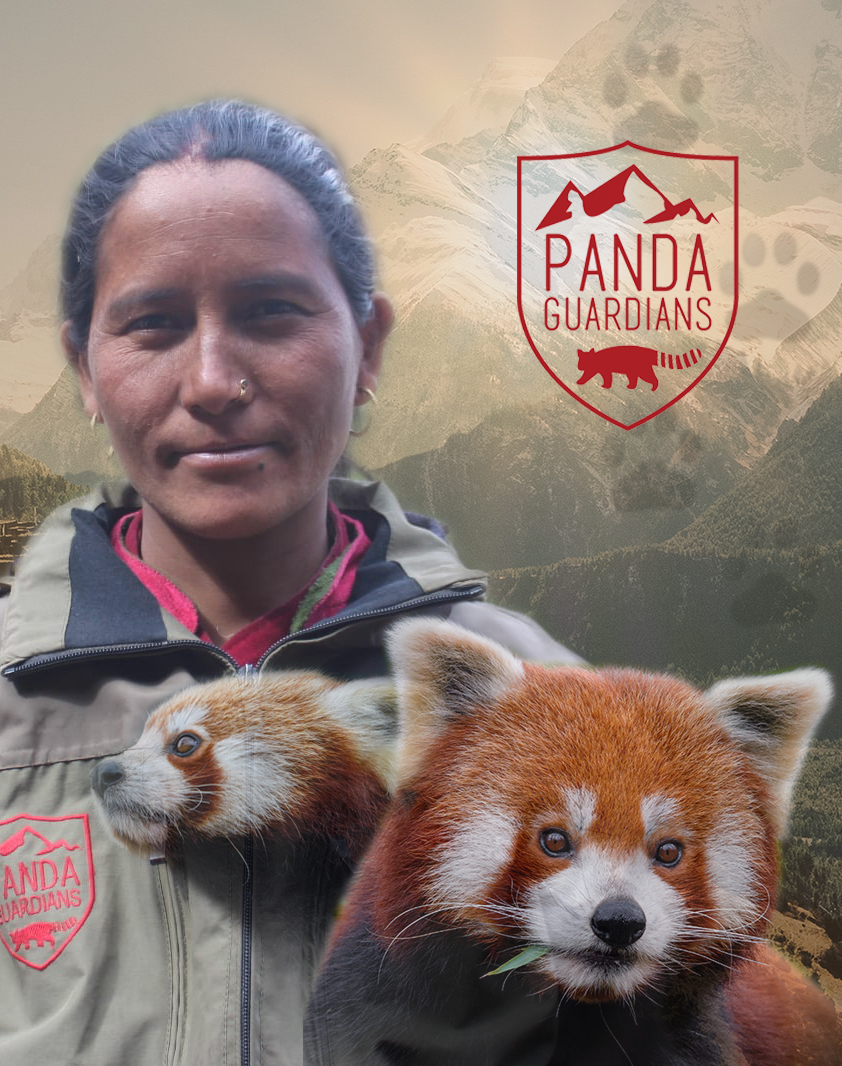
Reference:
Shah, G.M., Khadka, M.S., Ahmad, F., Budhathoki, N. and Shrestha, A.J., 2017. Assessment of Himalayan Nettle (Girardinia diversifolia) value chain development interventions: Evidences from rural households in the Far Western Nepal. Journal of Agricultural Science, 9(5), pp.19-32.
